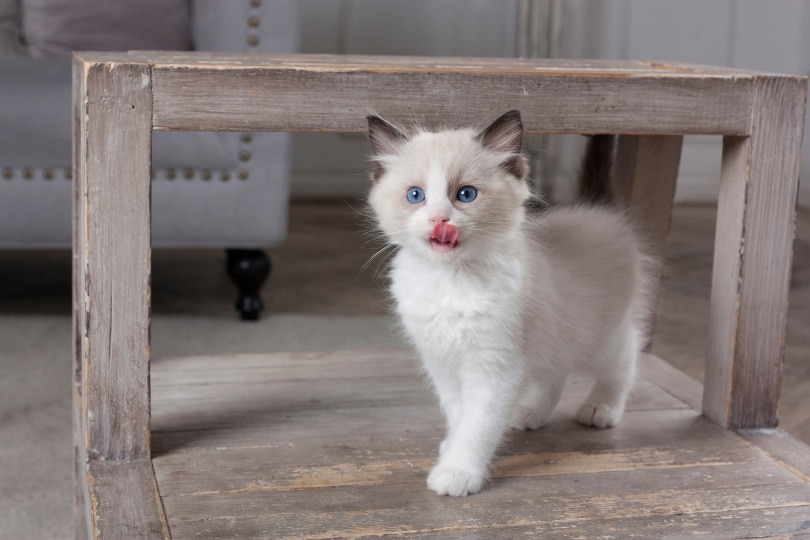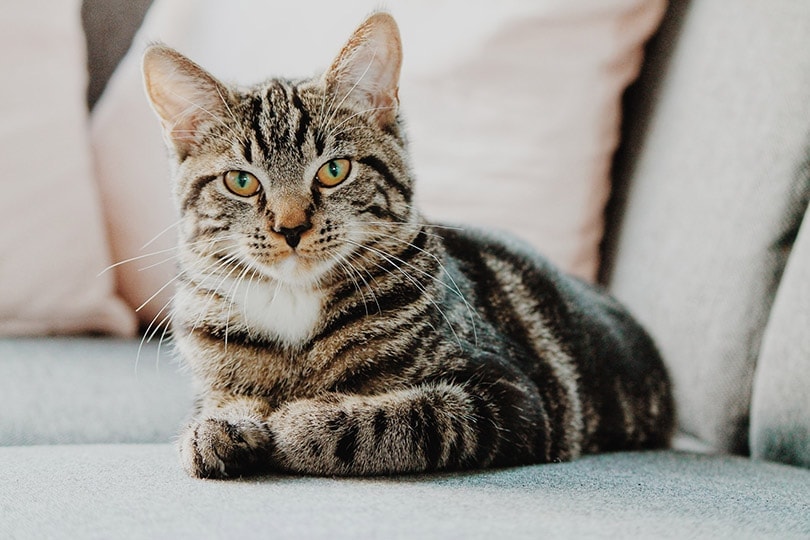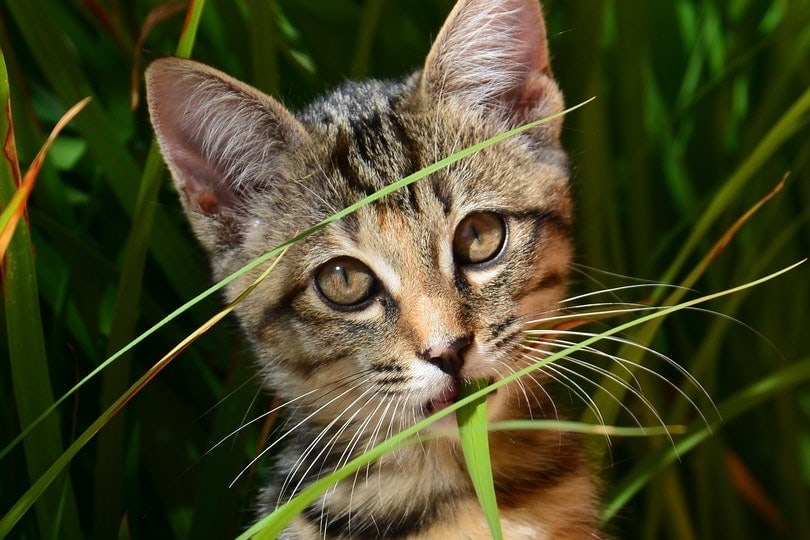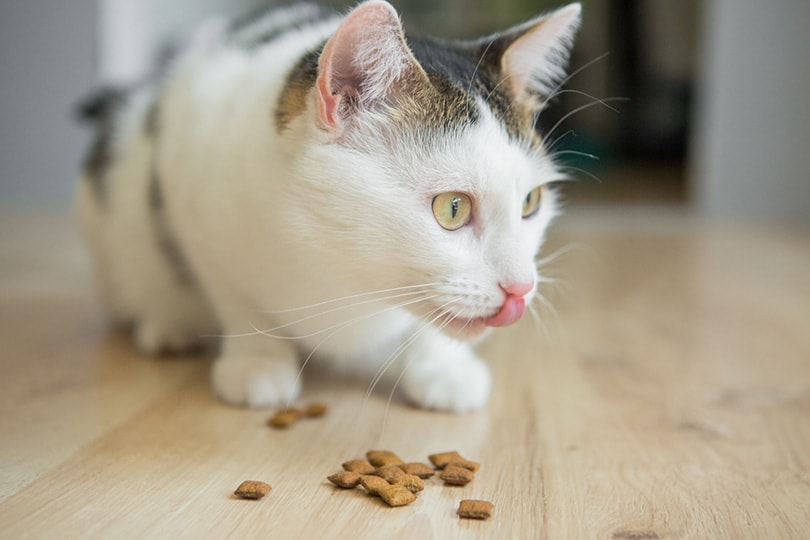Cats frequently groom themselves throughout the day, and licking their lips is normal behavior after a satisfying meal. However, excessive lip-smacking can be caused by a medical issue or behavioral problem requiring a veterinarian trip. Closely monitoring your cat’s everyday routine and noting any additional symptoms is vital to understanding the cause of the behavior. Cats may cry out when they’re not feeling healthy, but they mostly use body language to communicate any issues to their owners.
If your cat is licking its lips too much, this article can help you examine these possible reasons to help you determine the source of the behavior.
Top 9 Reasons Cats Lick Their Lips:
1. Dry Mouth
If your pet seems to have problems swallowing and frequently licks its lips, it may be due to a dry mouth. Over time, debris and fur can build up on the cat’s tongue and develop hairballs. Dry mouth, or xerostomia, can be a temporary condition caused by a fever or dehydration that can be treated to return saliva levels to normal. Medication such as antihistamines, diuretics, decongestants, sedatives, and anesthetic agents can also dry out a feline’s mouth. After a veterinarian examines your pet, they may suggest:
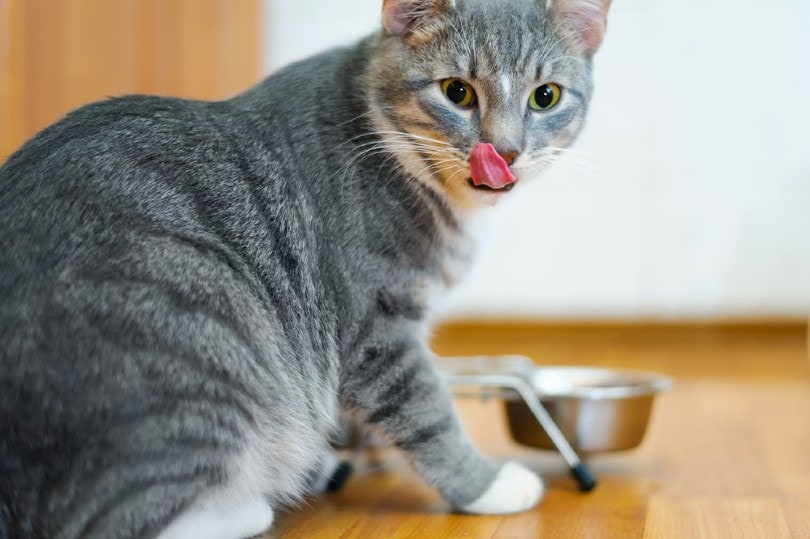
- Using water additives to prevent further infections
- Daily brushing
- Using pet-safe mouthwash
- Serving moisture-rich food
- Administering pilocarpine to increase saliva production
2. Allergies
Allergens in the air or food can also cause your pet to lick its lips and may be accompanied by respiratory problems and skin irritations. Possible allergens may include pollen, dander, dust mites, or grass. Taking your pet to the doctor for an allergy screening can determine the appropriate treatment, and you can also make changes to your home to alleviate symptoms. Purchasing an air purifier and keeping your home clean can reduce the presence of airborne contaminants.
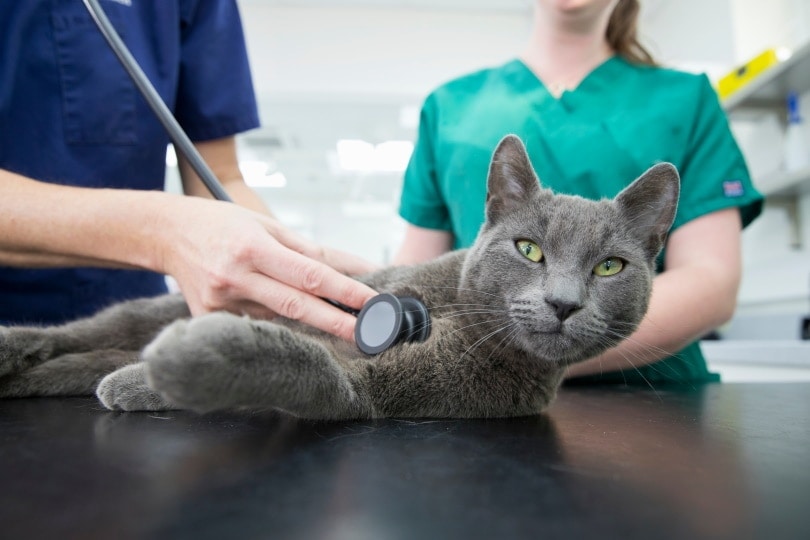
3. Ptyalism
Lip-smacking can occur when saliva production is lacking, but it can also be caused by ptyalism. Ptyalism is a condition where too much saliva is produced, and the cat licks its lips to compensate for the build-up. Symptoms of ptyalism include:
- Vomiting
- Refusal to eat
- Pawing at the face
- Problems swallowing
- Irritability
- Aggressiveness
Examine your pet to see if too much saliva is contained in its mouth and contact a vet for a complete health checkup.
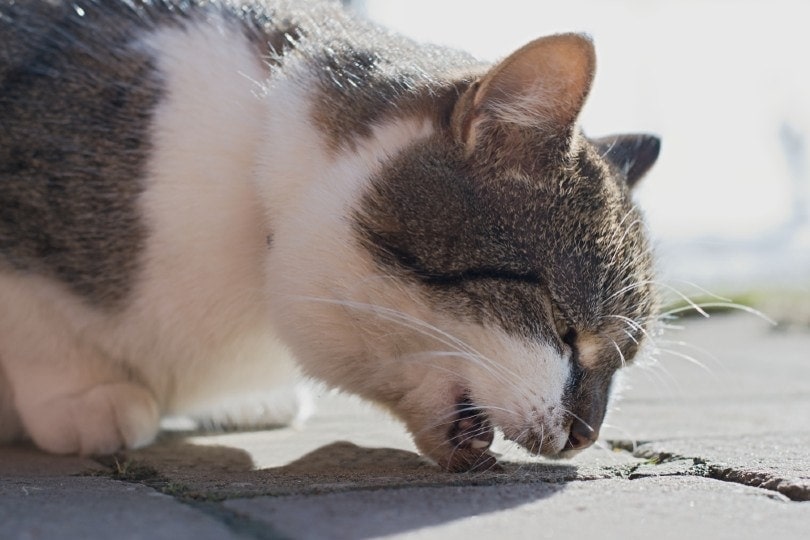
4. Nausea
Lip licking can also be a sign of nausea. Cats with nausea may appear anxious and continuously clear their throats and lick their lips. Nausea may be a temporary condition caused by eating something like a plant, hairball, or insect that doesn’t agree with the cat’s stomach. However, nausea can lead to vomiting or dehydration if the condition becomes acute.
A veterinarian may prescribe a bland diet for your pet along with medications to treat the problem. To avoid dehydration, you can provide ample fresh water and wet food with high moisture content.
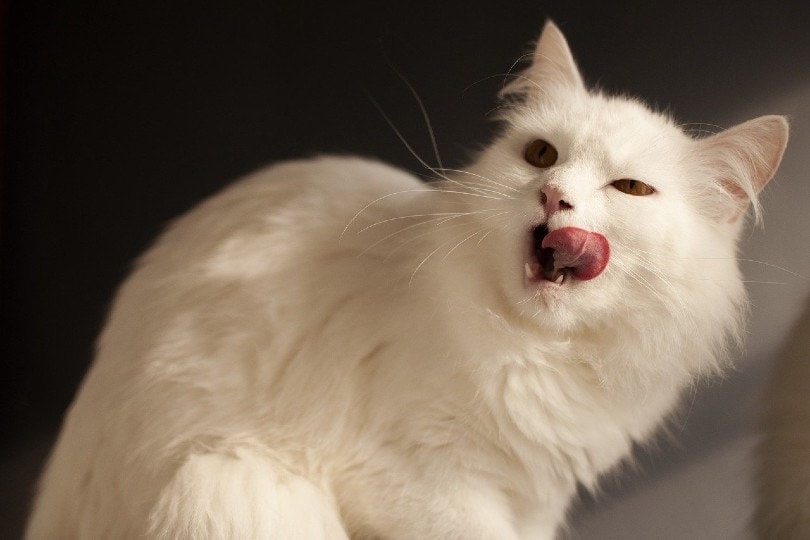
5. Oral Issues
When your cat licks its lips several times every day, the cause may be related to infected teeth or gums. Aging felines and ones with poor dental health are more vulnerable to dental problems. Over time, plaque can build up on the cat’s teeth and cause tartar to develop. The tartar can irritate your pet’s gums and cause the animal to smack its lips frequently.
Weekly brushing and using a water additive can remove plaque and tartar, but a severe infection must be treated by an antibiotic prescribed by your veterinarian.
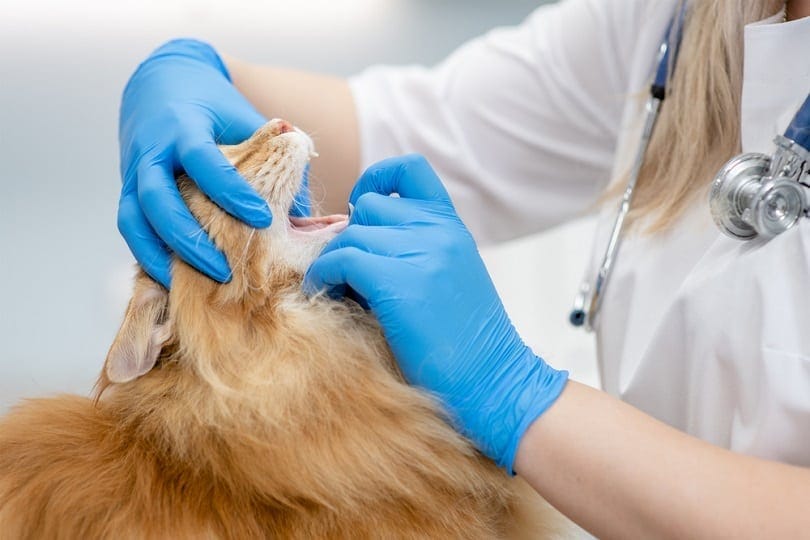
6. Unusual Tastes
Cats are attracted to strong aromas, and their curiosity may lead them to a foreign object or plant that does not agree with their taste buds. Even non-toxic substances like fresh herbs can make your cat lick its lips, but the symptoms are usually temporary and do not require a trip to the doctor.
However, ingesting a poisonous plant can cause severe medical conditions that a professional must immediately treat. If you have houseplants, you can check the ASPCA’s toxic and non-toxic list for pets to ensure your cat has not swallowed a hazardous substance.
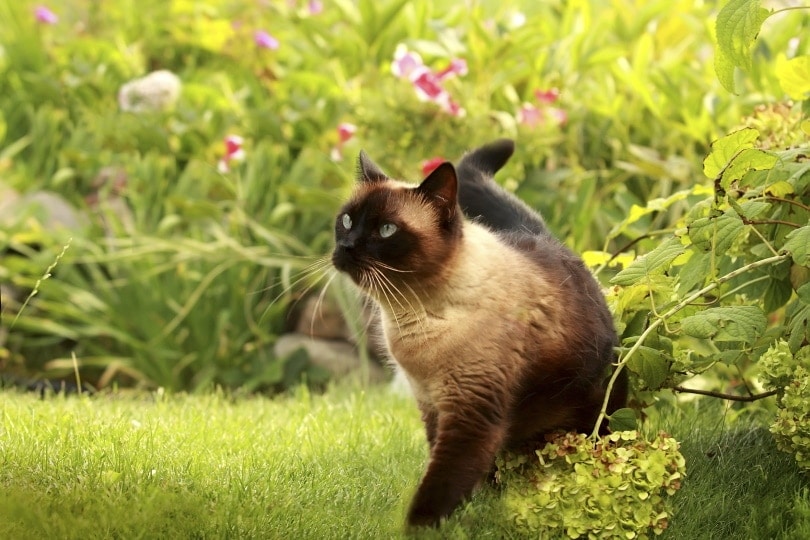
7. Upper Respiratory Infections
Like humans, cats are vulnerable to colds and respiratory infections caused by viruses or bacteria. Cats living in shelters, outside cats, and those in multi-pet households are more susceptible to infections than healthy indoor cats. Respiratory illnesses may be caused by:
- Fungus
- Bordetella
- Chlamydia
- Feline calicivirus
- Feline herpesvirus
Your vet can treat the condition with medications and a special diet, but more severe cases may include using an IV to distribute fluids. Fresh water is vital to recovering from a respiratory infection, and you may have to encourage your pet to eat more if its appetite is abnormal. Using strong-smelling cat food with tuna or other fish can convince your pet to eat.
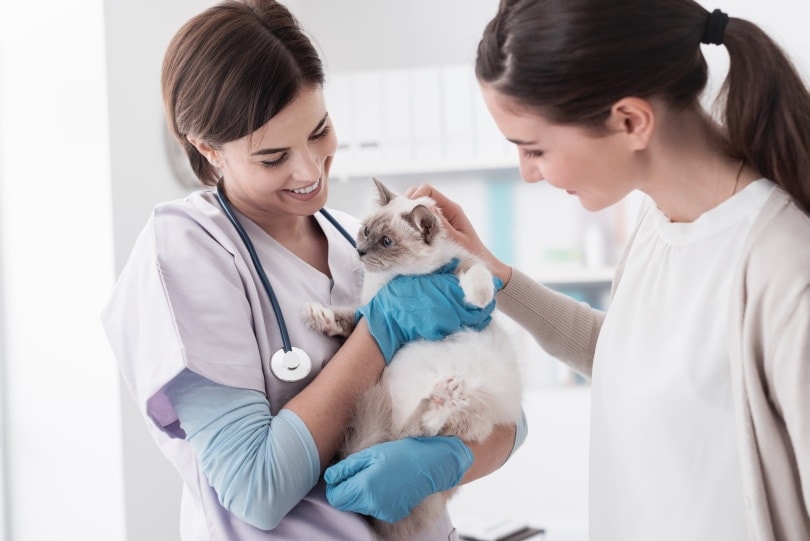
8. Anxiety
Although physical problems or medical issues often cause excessive lip licking, it can also occur from anxiety. A stressful event or break in routine can increase anxiety and make your cat lick its lips regularly.
Luckily, you can reduce the behavior by identifying the source of the cat’s problem. Have you moved recently or introduced a new pet to your home? Other possible reasons for anxiety may include a change in pet food, noise caused by nearby construction, or a new baby entering the house. Switching back to the cat’s old routine and using anti-anxiety medications can calm your pet and reduce its lip-smacking.
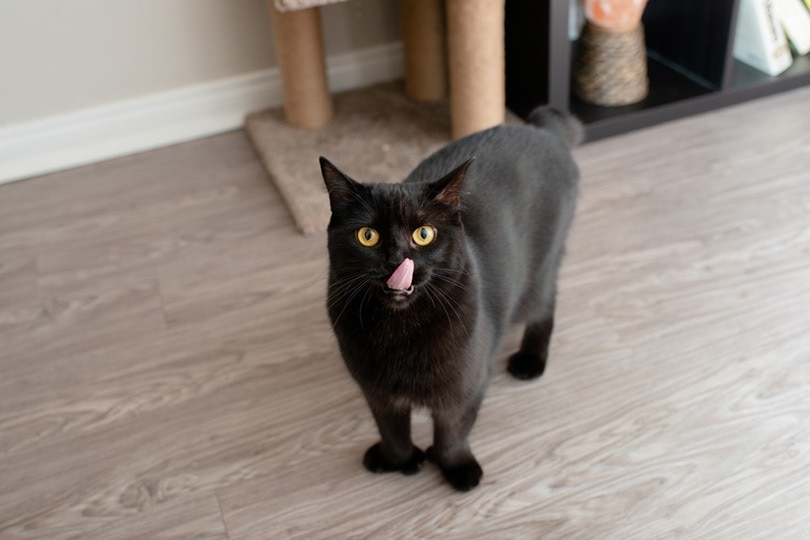
9. Compulsive Disorders
Obsessive-compulsive disorder (OCD)is a condition that is not unique to homo sapiens but also affects cats and canines. OCD involves repetitive motions and may include these symptoms:
- Excessive lip-smacking and grooming
- Excessive pacing
- Repetitive meowing
- Sucking on objects or fingers
- Chewing fabric
Before diagnosing your cat with OCD, a veterinarian will administer a series of blood tests and urinalysis to ensure the condition is not caused by an infection or severe illness. Behavior modification drugs can be prescribed to treat your pet’s condition, but you must closely follow the doctor’s dosage recommendations because overdoses with behavioral meds are common with cats.
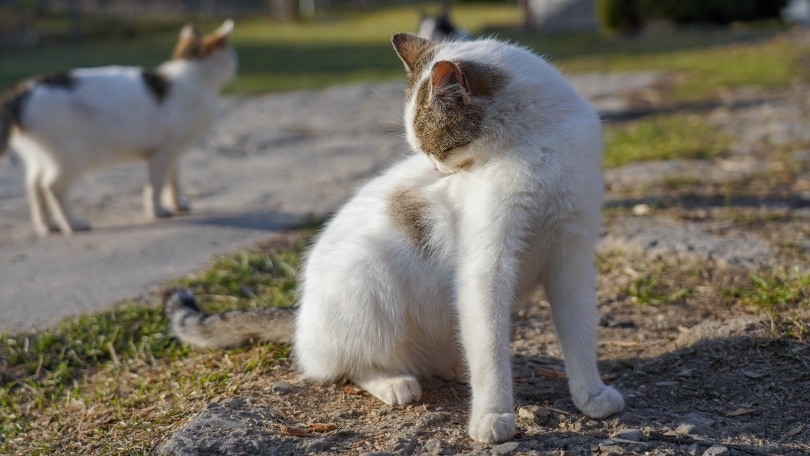
Conclusion
Lip-smacking after a meal or treat and during grooming sessions is not cause for alarm, but excessive licking indicates that your cat should visit the doctor. Treating the problem as soon as it’s obvious is vital to keeping your cat healthy. Delaying treatment can cause the condition to escalate and develop into a severe medical issue that endangers your pet and increases your costs. Your veterinarian can treat your cat’s licking behavior and offer recommendations to prevent repeat occurrences.
Featured Image Credit: klevers, Shutterstock

